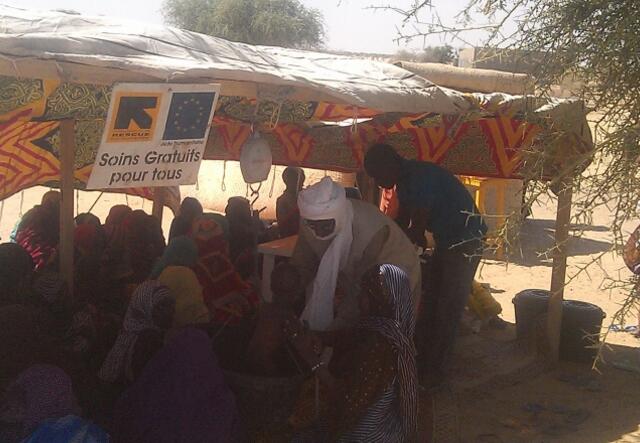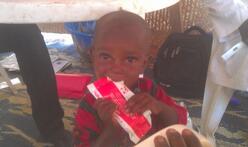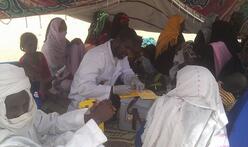
“You could see the bones through his skin. I was in despair because he losing weight every day.” Achta, a nomadic mother from the Bahr el Gazal region of Chad explains as she recalls her son’s condition before he received treatment from the International Rescue Committee.
Across the Bahr el Gazal region in central Chad, which hugs the edge of the Sahara desert, 85% of families like Achta’s are at risk of going hungry. High levels of poverty in the country have led to chronic food insecurity, exacerbated by conflict and poor infrastructure. The nomadic population, who spend at least part of the year migrating around the region in search of water and pasture for their livestock, struggle to access the vital healthcare services they need.
Since 2012, the International Rescue Committee has been providing healthcare and nutrition services to the nomadic population across the region. This includes supporting small children and pregnant women threatened by malnutrition; a vital service as over 10% of children in the region suffer from malnutrition. As fixed settlements are few and far between, the IRC provides its services through mobile clinics - all free of charge.

The mobile clinics are made up of small teams of nurses and other staff who pack their equipment and medicine into a Land Cruiser and travel along a circuit of twenty assembly points. “It always amazes me is that when you first arrive at an assembly point, you don’t see any houses or any people around, but soon many people will arrive,” explains Mariam, an IRC nurse. “You wonder where these people have come from. Some patients will say that they have walked or ridden a donkey for two or three hours to come and seek services.”
“One day, a community agent [a local volunteer trained by IRC staff] encouraged me to visit the mobile clinic. I went with my son.” Achta says. “We had to ride on a donkey for three hours to visit the mobile clinic. The people at the clinic gave me some medicine and cookies [nutritional supplements] for him. My son soon began eating again. Within a month, you could not see his bones anymore. Then the people at the clinic sent us to a doctor who gave me [enriched] flour for making gruel. Three months later, my son’s health is perfect. He doesn’t get sick like he used to.”

In addition to receiving treatment for malnutrition and illness, all young children brought to a mobile clinic are vaccinated against common preventable diseases. The IRC also works with families to understand the importance of vaccinations for the whole community.
“When the IRC team arrived here [in 2012], they spoke to us of certain diseases that can be avoided by having our children vaccinated. At that time, my eldest child was already too old to be vaccinated. However, with my younger children, I have never missed a vaccination date,” describes Zara, a mother.
Mariam, the IRC nurse, described her work on a mobile clinic team as rewarding despite the difficulties. “I am proud to be able to consult at least 40 patients each day,” she said. “That is many times more than the number of patients that nurses in local health centres are able to see. This is my source of joy.”
After receiving treatment from the IRC, Achta has become an advisor in her village. “I encourage the women of the village to bring their children to the mobile clinic site to get medicine and vaccinations, so that the children can be healthy and grow well.”
Across the Bahr el Gazal and Guera regions of Chad the International Rescue Committee supported by European Commission’s Humanitarian Aid and Civil Protection department provides vital access to healthcare to the nomadic population, reaching around 100,000 people with three mobile health clinics and three health centres as well as by providing training to local health practitioners.